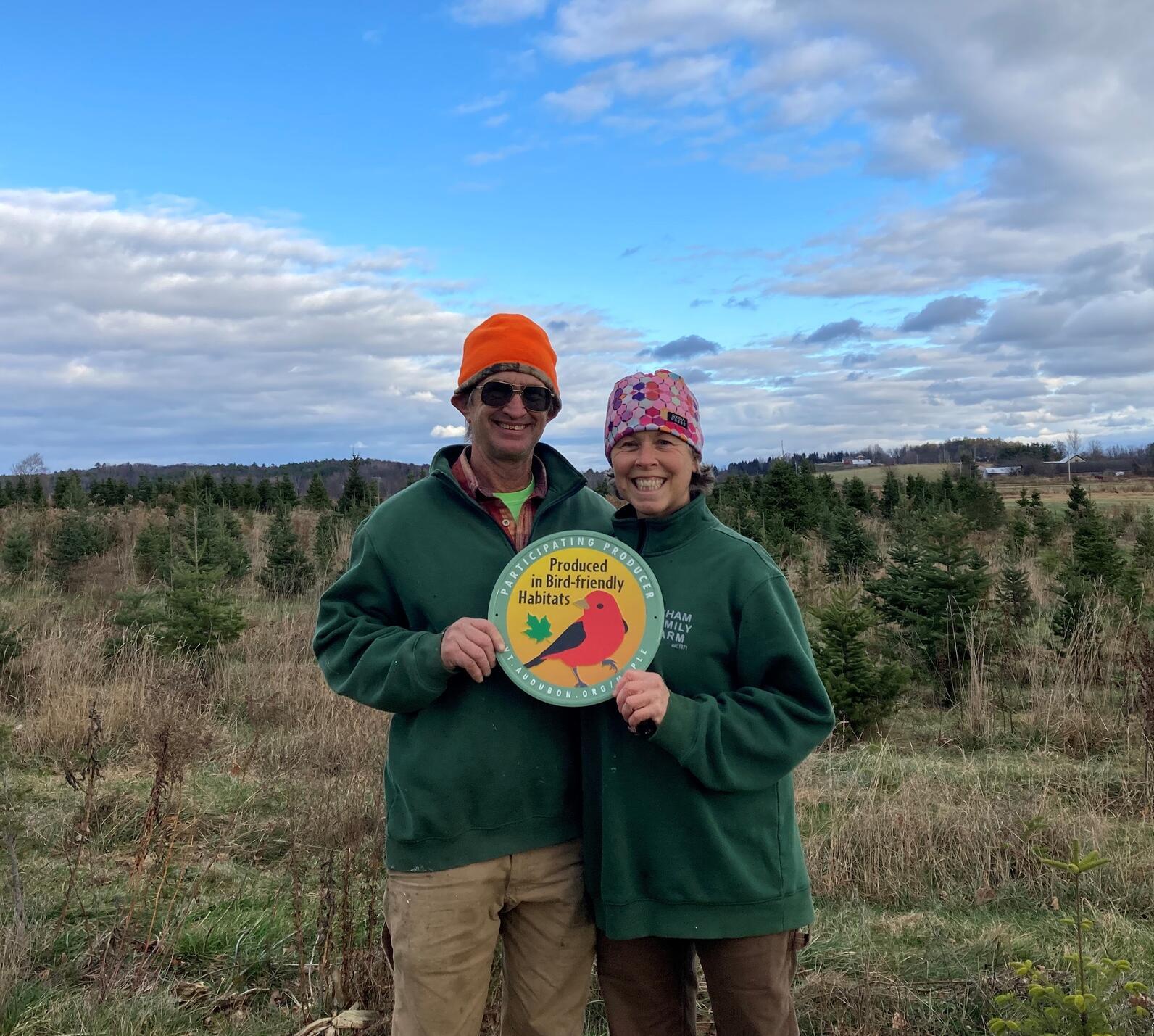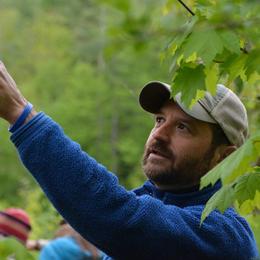One never knows what to expect when taking a drive around Vermont during the month of March. On one trip you might find your Subaru axle deep in muddy ruts while the next you’ll be white knuckling it on snowy and icy roads. What you can count on however is that on a warm day proceeding nighttime freezing temperatures, steam will be rising from sugarhouses all throughout the state – its maple sugaring time!
Each year Vermont leads the nation in maple syrup production, with nearly 50% of the total US crop coming from the Green Mountain state. The people producing all that syrup range from hobbyists with a few buckets hung on trees in the backyard to those who have made it their full time job. Each has their own story about how they got started, what they enjoy most about maple sugaring, and more. The stories of maple are steeped in history, tradition, and the many benefits that go along with the working landscape, including supporting biodiversity and serving as a natural climate solution.
I recently had the chance to catch up with four women who are co-owners of maple syrup businesses; Ann Bove of Shaker Mountain Farm in Starksboro, Elizabeth (Betsy) Fleury of Fleury’s Maple Hill Farm in Richford, Helen Weston of Isham Family Farm in Williston, and Sarah Kibbe of Maverick Sugarbush in Sharon, to hear their individual stories of maple. Each of them are participating producers in Audubon Vermont’s Bird-Friendly Maple program, in partnership with the Vermont Maple Sugar Maker’s Association and Vermont Department of Forests, Parks, and Recreation. This market-based conservation program recognizes sugarmakers who agree to manage their sugarbush with birds in mind with unique marketing opportunities, including labels for their products, signage, and other communications tools.
AUDUBON: How long have you been involved with maple production?
Ann: In 1987 we sugared communally with a group of neighbors on a neighbor’s land. We managed 100-125 buckets preseason with a half hour walk into and out of the sugarhouse. In the mid-1990’s we began installing a modern (sap collection) tubing system on the land we steward and have been expanding ever since. Note – Shaker Mountain Farm currently collects sap from over 2,000 trees.
Betsy: I entered the maple business in 1998 when I married my husband Steve and started to help him out with his family’s 3rd generation dairy farm and maple sugarhouse. Although I had a lot of dairy farming experience, I had no prior knowledge of maple sugaring. I have learned a lot about it over the years and now I am very proud to be a sugarmaker!
AUDUBON: What is your role in your current maple business?
Sarah: I wouldn’t say I really have a named role! Maybe a 9th year apprentice! I’m the wife of a sugar maker and we are an organic certified farm of about 27,000 taps that recently became Bird Friendly recognized as well! I support wherever needed, but mostly in the woods, but can also be found washing basins, label sample jars or making drops, if needed. I do have a full-time job that involves a lot of screen time so I chose to be outside whenever I can and try to do woods work when-ever possible! I take strategic vacation weeks yearly to support our farm during the season. Typically, starting in January, I spend 10 days tapping, then weekends doing line repairs as we start to ramp up and another week off in mid-March during peak season supporting more woods repairs/leaks and anything else we need; from the annual sugarhouse tour for the trade school in the area to maple sales that are not going to our bulk buyer.
Helen: During the boil, I feed the fire every 6 minutes – I love this job! I also jug up the syrup after Mike ((Isham) - Helen’s husband) draws off a batch. I also walk the woods before, during and after sugaring season to do the necessary work that is required to run a sugaring operation. I replace spouts and repair and replace lines.
AUDUBON: What do you enjoy most about making maple syrup?
Betsy: I am proud to be a sugarmaker. I am pleased that my husband and I are continuing the Fleury family’s long-time sugaring traditions in our 85 year old rustic sugarhouse. Sugaring is a very fulfilling job, and I am glad that I am one of the tiny fraction of the US population that gets a chance to do it.
Ann: Participating in an ancient rite of spring and sharing the joy of Vermont’s finest with others.
AUDUBON: What are some of the greatest challenges and barriers to overcome in your business?
Helen: The greatest challenge I see is whether Vermont can continue to produce maple syrup. As the world struggles with adapting to an unnatural speed of warming temperatures, I viscerally feel anxious about our beloved state and the native plants, animals, and environment. How will these new weather conditions impact our maple trees? Will the length of the season change? What about the quality and quantity of maple syrup?
Sarah: Weather patterns, climate change, and increasing production costs.
AUDUBON: What got you interested in the Bird-Friendly Maple program?
Ann: We consider ourselves avid birders, naturalists, environmentalists, and outdoor enthusiasts. The opportunity to pare maple production, woodlot management, and birds just makes sense.
Betsy: We first heard about the program at the Vermont Maple Sugar Maker’s Association annual meeting in 2017. We have always enjoyed seeing and hearing the birds that inhabit our sugarwoods, so were happy to hear that we could find ways through the program to help increase and even diversify the bird population.
Helen: As someone who loves birds (thank you Mom!), I attended a workshop on the program when I went to my first Vermont Maple Conference. It was exciting to me as I often carry my binoculars when working in the woods. It is important to me to protect the birds of Vermont.
Sarah: Honestly, I just happened to see the stickers on retail bottles for sale while visiting a sugarhouse in Woodstock, VT and I googled it after I left because I wondered what it was! As I read and learned, since we were already organic certified and we work with a forester to ensure a sustainable forestry, mow our fields specifically for the Bobolink habitat, and consider the natural habitat for wildlife in everything we do, the two programs seemed to complement one another to ensure birds continue to have a natural habitat for years to come! A win/win!






